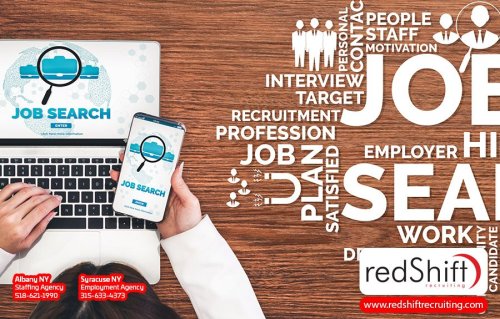Why Hire a Temporary Employee? Advantages of Hiring Through a Temp Staffing Agency

There are many reasons why you should consider hiring a temporary employee. Perhaps you need to fill a gap in your workforce quickly and don’t have the time or resources to conduct a traditional search. Maybe you’re not sure what you’re looking for and would like to test out a potential candidate before making a commitment. Or maybe your recent hires have been mistakes and you are looking for ways to find more reliable and qualified candidates. Whatever your situation, working with a temp staffing agency can be an advantageous decision for your business. In this blog post, we’ll discuss some of the benefits of using temps and how partnering with a temp staffing service could be the right solution to your staffing problem.
Hire Faster with a Temporary Staffing Agency
When you need extra help to complete a project on time or handle an increase in business, you need to hire fast. Working with a temporary staffing company is the quickest way to get the help you need, when you need it. Staffing agencies have access to databases of pre-screened and ready-to-work temporary employees that they can contact quickly, and they have the resources and expertise to source new candidates if you need someone with a specific skill set. This eliminates the need for you to post job ads, sort through applications, and conduct interviews, which can save you a considerable amount of time and effort.
More Flexible Staffing
Another advantage of hiring temp workers is that it allows for more flexible staffing. If your business is seasonal or experiences fluctuations in demand, temp workers can be brought on as needed to handle the increased workload. And since they are employees of the temp agency, you don’t have to worry about all of the expense and legal liabilities of hiring permanent employees. Or if you have a new project which requires specialized knowledge or just some extra hands to meet a deadline, you can get the help you need without making a long-term commitment. When production needs decrease or the project is concluded, you can easily let the staffing service know you are ready to end the assignment. This is a cost-effective way to manage your budget and ensure that you have the right number of employees on hand to meet your needs without overstaffing.
Provide Coverage for Absent Employees
Not sure how you’re going to manage when your administrative assistant or receptionist goes on that week-long vacation? Worried your network will crash while your IT specialist is out on family leave? Have an open permanent position that will take weeks or months to fill, but need someone to pick up the slack in the meantime so your employees don’t get overwhelmed? Temporary employees are lifesavers when you need someone to cover for employees who are on vacation, out sick or on disability leave, taking a leave of absence, completing military or jury duty, out on maternity/paternity leave, or starting a major project that will prevent them from completing their usual work duties. Hiring a temp worker will ensure your business keeps running smoothly and your employee doesn’t return to a month of overdue work.
Get Specialized Help When You Need It
There are some tasks or projects that come up that are outside the scope of your regular employees’ skill sets. If you need someone with specialized training or experience, a temp staffing agency can help you find the right person for the job— and you don’t have to worry about what to do with them when the project is over. Once again, this can save you both time and money by eliminating the need to train someone or the cost of paying a full-time salary for skills that you only need on a temporary basis.
Save the Cost of Permanent Employees
The cost of a full-time, permanent employee goes way beyond their salary. When you hire permanent staff, you are responsible for their benefits, vacation pay, sick days, and any other perks or incentives your company offers. You also need to consider the costs of the onboarding process, including background checks or drug screens if your business requires them, and the financial burden of payroll taxes, unemployment insurance, and workers’ compensation insurance.
On the other hand, when you use temporary staffing services, you only pay the agency’s fee and the hours the employee works. This lets you avoid the hidden costs of a traditional hire, which can make using temporary employees from a reputable staffing agency significantly more cost-efficient for businesses whose staffing needs often fluctuate.

Screen Candidates and Reduce Risk of Bad Hires
Hiring is a risky business. You can never be completely sure if a candidate will work out until they’ve been on the job for a while, and by then you’ve already made a significant investment in them. Or you might no sooner complete their training when they hand in their notice. Hiring the wrong person is expensive, and it can severely affect your business in terms of lost productivity, decreased morale, and the cost of restarting the recruiting process. Working with a temp staffing agency can help you reduce the risk of making a bad hire. If you’re not satisfied with a temporary staff member, you can simply request the assignment be ended and the agency will look for a replacement. In addition, since the staffing firm screens candidates before sending them your way, you can be confident that anyone they send meets your basic requirements. This lets you save time and effort by putting your sourcing and screening process in the hands of an experienced recruiter and interviewer.
In temporary staffing, you always have the option of temp to hire too. Temporary-to-hire roles let you try out a potential candidate before making the long-term commitment of hiring full-time employees. It’s easy enough for candidates to say the things you want to hear in an interview, but do they have the skills to back it all up? Temp to hire gives you time to assess their job performance, observe their work ethic and reliability, and see if they work well with the rest of your team before extending a job offer. And if things aren’t working out, all you need to do is let your agency know you want to end the assignment.
Ensure a Good Culture Fit
When you’re hiring, it’s important to not only find someone with the right skills and experience, but also someone who will fit in with your company culture. The fact is that not everyone will be a good fit for your company. If your facility is loud, has production-related smells or hazards, or if the job has physical requirements like being on your feet all day, it may not appeal to some candidates. If teamwork is essential to keeping your business running smoothly, an employee with poor communication skills or a bad attitude could cause a lot more problems than they solve. Or if you have a high-pressure sales environment, someone who can’t handle stress or is struggling to meet deadlines probably won’t be successful in the role. Not only can a temp recruiter help you by identifying the type of personality that will thrive in your work environment, but hiring workers as temp or temp-to-hire will give you an opportunity to see whether they fit in well with your team before you commit to offering a full-time position.
Build Relationships with Recruiters
When you build relationships with agency recruiters, you gain insights into employment trends in your industry as well as access to a larger pool of potential candidates. For example, they can tell you whether the salary you want to offer is competitive or if you will have to increase your offer to attract candidates with the desired skills and experience. Additionally, they know the types of roles that are in high demand and how common those skill sets are in your local hiring market, so you can plan your hiring accordingly. And, because they work closely with the candidate, they can provide useful information about their deal breakers so you can build an acceptable offer, or they can alert you if you need to expedite your process because the candidate has alternative offers on the table. Once a temporary worker has accepted your job, the agency takes care of all the hiring details so all you have to do is name a start date. And if the employee isn’t working out, your recruiter is just a phone call or email away.
Agency Guarantees
When a permanent employee isn’t working out, you have to go through the entire termination process, including all the associated paperwork and potentially the burden of unemployment benefits. With temporary employees, if they aren’t a good fit for the job or you simply don’t need them anymore, all you have to do is inform the agency and they will end the worker’s assignment and look for a replacement. Since they are the employer, they take responsibility for the entire termination process as well as other employment risks. This gives you peace of mind knowing that if a temp is constantly late or absent or lacks the skills to be successful in the role, you won’t be stuck with them.
Save Time by Outsourcing the Hiring Process
Hiring takes a significant amount of time and effort, especially if you don’t have a dedicated in-house recruiter or a large HR department. Temporary staffing agencies allow you to outsource the entire process, from sourcing and screening candidates to testing and onboarding, so you can focus on running your business. This can be a huge time saver, and it frees up your regular employees’ valuable time so they can work on other projects.
Need Temporary Help?
There are many reasons why hiring temporary workers through a temp staffing agency can be beneficial for your business. From the ability to hire faster and have more flexible staffing to reducing the risk of bad hires and saving time by outsourcing the hiring process, working with a temp agency can help you in many ways. You can also build relationships with recruiters who can give you insight into the hiring market and help you avoid costly hiring mistakes. And if you may have a permanent opening on your team in the future, temp and temp-to-hire roles are a great way to ensure candidates are a good culture fit and have the necessary skills before you make them a full-time worker. If you are looking to hire employees, evaluate your company’s short- and long-term staffing needs to determine whether a temporary or a permanent hire will be the best fit for you. Although often undervalued, temporary workers provide invaluable services and may be the perfect solution to meet your staffing needs.

from Career Blog: Resources for Building a Career - redShift Recruiting https://www.redshiftrecruiting.com/career-blog/why-hire-a-temporary-employee-advantages-of-hiring-through-a-temp-staffing-agency
via redShift Recruiting
Is a Temp Job Worth It? The Benefits of Temporary Work

If you’re looking for a job, you’ve probably seen ads for temporary positions or received calls from local recruiters with temp opportunities. Perhaps you’re questioning whether accepting a temp job is a good move. You don’t want your career to stall and you’re worried that employers will view temporary work negatively on your resume. Temporary work may not be your dream job, but if you think there are no benefits to temp employment, you couldn’t be more wrong. Not convinced? Here are a few reasons why temporary employment could be just what you need to push your career forward.
Earn a Paycheck While You Look for a Permanent Position
One of the most obvious benefits of taking temporary work is that it can help you make ends meet while you’re looking for more permanent employment. If you’ve been unemployed for a while, your savings are probably running low and you may be struggling to pay your bills. A temporary job can provide some much-needed financial relief or help you maintain that cushion if you’ve just lost your job and aren’t sure how long it will take to find something new. If you’re employed and considering a second job, temp work can help you cover unexpected expenses or save up for a large purchase.
Get Your Foot in the Door with a Great Company
Another benefit of temporary employment is that it can help you get your foot in the door with highly desirable companies. Many employers use temp agencies to fill short-term staffing needs, but they also use them to identify and hire great candidates for full-time positions. For job seekers interested in a specific company, temping can be a great way to develop key connections and make a good impression on their desired employer. For outstanding employees, there can be potential to be offered a contract extension or even a permanent position if one becomes available.
Don’t discount temp-to-hire positions either. Hiring the wrong person is expensive, leading to wasted time, resources, and costly job vacancies. To avoid this, many employers use temp-to-perm arrangements to screen candidates for full-time positions, assessing their performance and work ethic over an extended period of time. Temp to hire means the company has open positions and wants to hire you— you just need to prove that you have the ability and the commitment to be successful in the role.
Make Connections and Network
If you’re looking for a job, it’s not just about what you know, it’s also about who you know. Making connections and networking are often essential for career progression, and a temporary job can help you do both. When you work with other people, even on a temporary basis, you have the opportunity to build relationships that can help you in your job search. If you’re temping in your desired field, you can use the opportunity to network with people who work in the industry and who may be able to help you find a full-time job. You never know when you’ll meet the person who will introduce you to your next career opportunity, but your odds of meeting them are a lot better in the workplace than they are sitting at home.
Flexibility Between Temporary Jobs
If you’re not ready to settle into a career, or you want the freedom to travel, spend time with family, or pursue a hobby or business venture, short-term assignments can give you the flexibility you need. When the temp assignment ends, you can take a break to focus on your other goals, and then pick up another temp job when you’re ready. This arrangement can be perfect for recent graduates who may not be sure what they want to do with their career yet or for entrepreneurs working on turning their side business into a full-time job. Even if you aren’t interested in a job’s long-term potential, however, make sure you always act professionally and are reliable while on assignment. Your professional reputation follows you, and you may find it harder to get good temp jobs if employers and staffing agencies start to know you as someone who shows up late, quits without notice, or has poor work performance.
Develop New Skills, Get Experience, or Explore a New Field
If you’re just starting out in your career, temporary jobs can give you the opportunity to develop new skills or get experience in your desired field. Even some entry-level jobs require at least some experience, and if you’re just starting out or have recently changed careers, your resume may not have the work history employers are looking for. Temp jobs can give you the chance to build up your resume so you can be more competitive when applying for direct hire positions, which can lead to better offers down the road. Even if the job isn’t related to your desired career path, the skills you gain can be transferable. And if you’re considering a career change, temp work can give you the opportunity to observe and learn about a new field before committing to it.

Avoid Resume Gaps with Temp Jobs
Resume gaps can cause employers to question your work history and reliability. This not only leads to awkward questions in interviews, but may disqualify you from getting an interview at all in some cases. Taking temporary work during these in-between periods can help you avoid gaps and display your work ethic and commitment to potential employers.
Restart Your Career After a Long Break
Sometimes resume gaps are unavoidable and takinga career break is not uncommon. People may need to take long periods of time off for a variety of reasons, such as caring for children, recovering from an illness, serving in the military, or attending to an elderly or sick relative.For those looking to restart their career after a long absence, temp jobs can provide opportunities to brush up on your skills, get reacquainted with the workplace, and make new professional connections without committing to anything long-term. Once you’ve refreshed your skills and added recent experience to your resume, you’ll be much more competitive and confident when applying for permanent employment.
Try Before You Buy
Worried about getting stuck in another job you hate? A temporary to hire position isn’t only an opportunity for the company to see whether you’re a good fit for their role— it’s an opportunity for you to test them as well. Use the temporary period to observe the work environment, management style, and work culture, in addition to deciding whether the job duties are a good fit for you or whether there is potential for career growth. At the end of the temp period, you will be able to make a much more informed decision whether to accept a permanent position if one is offered or to apply for another position in the company. And if it isn’t the right fit for you, no problem! Just turn in your notice and see what else is out there. In the meantime, you’re gaining experience, making professional connections, and earning a paycheck.
Work with a Temp Recruiter
Temp jobs are often filled by recruiters attemporary staffing agencies, and a strong relationship with a good recruiter can be invaluable, not just for your immediate job search, but throughout your career. Recruiters often work with a range of positions and have connections that can put your resume directly in front of the hiring managers of some of the best companies. That means they can get you to work fast if you need something right away, or they can keep an eye out for positions that will be a better long-term fit for your skills. In some cases, they have inside information on job opportunities that aren’t publicly advertised and can advocate for you with hiring managers. They are also an excellent resource to help you understand the current job market, including what employers are paying for your skills and how you can make yourself more marketable in your industry. And if a position isn’t working out, they can help you find a new job. Just make sure you stay professional, even if you decide you want to leave the job they placed you at. They will be happy to help you make a move as long as you don’t burn any bridges.
Find Summer Work
If you’re a student, summer is an ideal time to look for short-term jobs while you’re not in school. Many companies need temporary workers to help with the increase in demand that comes with the warmer weather. Not only can you earn some money to pay the bills, but you’ll also gain experience and make connections with supervisors or other employees that will be invaluable once you graduate and start looking for a full-time position.
A temp job may not be your dream job, but it can offer a lot of benefits that can help you in your career. If you’re looking for work, don’t discount the value of a temporary role. It can be an opportunity to gain experience and make connections which can help you land the job you’re looking for. And if nothing else, it’s a great way to earn some money while you’re looking for something better. So why not give it a try? You may be surprised at what you find.

from Career Blog: Resources for Building a Career - redShift Recruiting https://www.redshiftrecruiting.com/career-blog/is-a-temp-job-worth-it-the-benefits-of-temporary-work
via redShift Recruiting
How to Screen and Evaluate Candidate Interest in a Job

You know that feeling when you are interested in someone and they seem to be into you too? You can’t wait for your next date, or for them to call. Wouldn’t it be great if every job candidate was like that? You want them to be just as excited about a potential career with your company as you are. Unfortunately, that isn’t always the case.
One of the most frustrating experiences for recruiters and hiring managers is having a great conversation with a candidate, deciding to either move forward in the interview process or offer the position, and then having the candidate stop returning your calls or decline an offer at the last minute. Or they may accept a position only to quit within a few weeks or months. It’s frustrating, disappointing, and a waste of time for everyone.
With labor shortages, growing skills gaps, and a candidate-driven market, hiring seems harder than ever for many employers. While applicant tracking systems, good pre-screening questions, and skills tests can help you get qualified candidates into your interviews, you will need to employ different methods to determine whether they are truly interested in your company. Although you cannot read anyone’s mind, getting an idea of how interested a candidate is in your company will help you strategize your hiring process so you can ask better questions and hopefully avoid unpleasant surprises.
By developing a better understanding of your candidates, their abilities, and the way they think, you can create a more efficient and effective recruitment process which will help you screen for talented individuals who are genuinely interested in your company and avoid wasting time on the wrong candidates.
How Can You Assess a Candidate’s Interest in Your Company?
Finding the right person for your job can be hard. After you’ve spent days reviewing applications and interviewing candidates, it’s demoralizing to select a candidate and craft an offer only to have them back out at the last minute or quit after a few weeks, especially if you were convinced they were as excited about joining your team as you were. Unfortunately, people may lie about their interest in a job for a variety of reasons. These may include:
Your job does not meet their requirements in terms of pay, benefits, opportunity, flexibility, etc.
They’re waiting for another offer.
They are afraid to make a change and do not want to take on the potential challenges of a new company or position.
They decide they can do better elsewhere.
They are indecisive and are afraid you won’t offer the job if they are honest about their concerns.
Regardless of the reason, you don’t want to waste your time and resources on someone who is not interested in working for you. That’s why it’s so important to assess the candidate during the interview process to better understand their priorities and what they think about your company and job offer. While there will always be some candidates who are dishonest with you, there are ways to tell if they really want the job. Learning how to assess a candidate’s interest in your company can help you address any issues or concerns they have early on. It may be possible to overcome these challenges if you know they exist, or at least be prepared if you know you may not be a candidate’s first choice.
So how do you know whether a candidate is really interested before you invest too much in them? To screen candidates effectively, you will need to go beyond the usual employment history and basic pre-screening questions. Asking yourself the following questions can help you gauge job applicants’ interest in your role.
Are They Prepared for the Interview?
Are they familiar with the job description you posted or do they seem unclear about what they applied for? Did they take time to learn about your company before the interview? Ask them to briefly describe what your company does or promote one of your products as if they were speaking to a customer. This will help you assess how excited they are about the work your company does.
Do They Ask Questions and What Are They?
Do they have questions about the job and the business? What do their questions imply their focus is? Money? Growth opportunities? Work culture? Flexibility? Job responsibilities? Some people may just be nervous, but having few or no questions could be a red flag that they aren’t interested.

What Attitude Are They Displaying in Their Tone of Voice and Body Language?
Do they seem engaged in the conversation? Are they reluctant to answer questions? Are they excited when discussing the job, or do they seem indifferent? If someone seems bored or disinterested in what you’re saying, chances are they won’t be invested in your company after they get hired either.
Does the Conversation Flow?
Are they friendly and open to the discussion, or is it difficult to get them to talk? Do they have a good attitude? Do they give the impression that they will be happy and fit well in your company culture? While an animated conversation can be a great indicator that the candidate is excited about the role, keep in mind that interviews are stressful, and nerves may make some candidates not perform their best. Not everyone has the writing skills to write amazing cover letters or the presentation skills to give an impressive interview, but that doesn’t mean they don’t have the skills necessary to do the job.
Are They Interested in Their Industry?
Are they knowledgeable and staying up-to-date on current trends? Do they read any industry-specific publications or are they working on any applicable certifications? Are they excited about the work, or is this just another job for them? If a candidate is passionate about your niche or the work you do, they are more likely to be interested in your company long-term.
Are They Willing to Put in Extra Effort Beyond the Initial Interview?
Do they provide work samples when requested, show up for multiple interviews, complete assessments, etc.? It’s important to make sure the hiring process isn’t unnecessarily long and difficult, or even the best candidates may give up or accept another offer while you’re scheduling third and fourth screening interviews. However, if a candidate isn’t willing to go the extra mile to get the job, then they probably aren’t that interested.
What Do You Know About Their Current Role?
During resume screening, make note of the candidate’s current and previous employers. Ask them why they want to leave their job. What did they like/dislike about it? What are they looking for in their next job? Do they seem excited about pursuing new opportunities? Are they interviewing for other positions? Use their responses to assess how committed they are to making a move and whether your company matches what they’re looking for. If they disliked their previous responsibilities or work environment and your position description is very similar, they probably won’t be happy at your company for very long.
Why Do They Want the Job?
What do they think they will like/dislike about the role? Are they excited when talking about it, or do they seem bored? Why do they think this will be a good career move for them? What about your company makes them interested in working for you? A short but thought-out response that aligns with your company’s core values and goals shows they are interested in the job, in addition to revealing what their priorities are.
What Are Their Deal Breakers?
When screening candidates, find out what it is most important for them to have in their next role. Are they focused on flexibility, good benefits, opportunity for growth, salary, remote work options, work culture, schedule, travel, or something else? Does your company meet their needs? If your job is failing to meet any of their deal breakers, they are unlikely to accept a job offer, and if they do, they probably will be ready to make another move after a few months.

Would They Accept a Counteroffer from Their Current Employer?
Why or why not, and what factors would influence their decision? Educate them on the statistics and hazards of accepting counteroffers.
What Are Their Long-Term Goals?
How long do they expect to stay in this job? Do they know what type of work they want to do, and does that match with current or future opportunities at your company? Understanding their desired career path and goals will help you determine if they see your company as a good long-term fit. If your job descriptions won’t be rungs on their ladder to success, they will be more likely to reject your offer for one that is a better career move.
How Do They Portray Themselves on Social Media?
Many prospective employers research candidates on social media, which can be a goldmine of insight into an employee. Do they talk about their job search, their current job, or even your interview? What do they say? Are they invested in growing their industry knowledge or do they have hobbies that require skills that would be a great asset for your job description? Do they have a positive or negative attitude? Does the person they display on social media match the person you met in the interview? This will give you a better understanding of the candidate’s personality and help you determine things like work ethic and cultural fit. However, be mindful of unconscious bias and take steps to ensure your hiring decisions are fair and promote diversity.
How Do They Treat Your Staff?
Were they friendly with everyone in your office (their potential coworkers), or are they rude or awkward around your employees? Pay attention to how the applicant interacts with people both before AND after the interview. If they really want to work for your company, they will make an effort to make a good first impression on everyone they meet during their interview, and if they are disrespectful to your employees, you may want to rethink making an offer anyway.
A Smarter Candidate Screening Process
While the hiring process can be challenging, it’s far from impossible. When screening candidates, make sure that you’re asking the right questions and really listening during interviews so that you choose someone who is not only qualified but also excited by what they do at work every day. Even if a candidate seems engaged in the conversation during an interview, they may not be interested in the job. Look for red flags in their responses or body language and make sure you understand what is important to them in their job search so you can address any concerns before they make a decision against you. Hiring someone who shows interest and enthusiasm about your company from day one should be an immediate priority because it leads to higher retention rates - and isn’t that what we all want?
Get Help from the Experts
Recruiters serve as a bridge between you and the candidate. A good recruiter takes the time to understand what a candidate is looking for in a job and then finds opportunities that meet those needs. In addition to using screening methods to identify candidates who meet your hiring criteria, they can give you insight into the salary and perks that the best employees will need to consider making a move. This information is invaluable to help you craft offers that are more likely to be accepted and avoiding wasting time when you and the candidate are not going to be able to agree on terms. If you’re struggling to attract top talent, contact one of our recruiting specialists today.

from Career Blog: Resources for Building a Career - redShift Recruiting https://www.redshiftrecruiting.com/career-blog/how-to-screen-and-evaluate-candidate-interest-in-a-job
via redShift Recruiting
Why Employers Need to Embrace Remote Work Options to Attract Top Talent

In the past, working remotely was a rare perk or privilege, often seen as a last resort for employers to accommodate employees who were unable to come to the office. Although technology has long made it possible to do some jobs from a living room couch or a hammock on the beach just as well as from an office cubicle, employers have been reluctant to embrace remote work options. Then the Covid-19 pandemic struck, forcing many employers to close their offices and try an unplanned work-from-home experiment. In spite of pandemic restrictions easing and health fears gradually becoming less of a factor in return-to-office discussions, a majority of remote employees are still resistant to the idea of returning to an office setting. Although many managers are anxious to get back in the office, some forward-thinking companies like AirBNB are embracing these changes to the traditional work model, and others will likely follow suit so they can attract and retain top talent.
The Rise of Remote Work
It’s no secret that the pandemic has had a profound impact on the way we work. As lockdown and stay-at-home orders were issued, businesses abruptly sent home everyone whose jobs could be performed remotely. Most people had little notice or preparation for this transition, making the first few months chaotic as employees adjusted to Zoom meetings and teams software while working at dining room tables or bedroom desks with children and pets underfoot. But as companies got more organized and employees settled into a new normal, many people found they actual preferred working remotely– and don’t want to go back to the office.
According to data from the US Chamber of Commerce, 36% of middle-market companies polled in the fourth quarter of 2021 reported they had remote employees who were in-office before the pandemic. Out of that 36%, 65% were currently using hybrid work options and 48% were allowing permanent full-time work options for certain employees. A Pew Research Center study found that 59% of employees whose work could be done from home were still completely or mostly remote as of January 2022. While this number is reduced from 71% in October 2020, it is a huge increase from the 23% who were working remotely prior to the pandemic. While in October 2020, 64% were working from home because going into the office was not an option, but by January 2020 that number had decreased to 38%, with 61% of employees saying they weren’t going into the office because they preferred remote work. Fear of contracting the coronavirus was becoming less of a concern, with only 42% citing it as a significant reason they were choosing to work from home as of January 2020. A Gallup poll from September 2021 found a similar preference for remote work options, with 91% of employees who were working from home at least some of the time wanting to continue having this option, and 3 in 10 remote workers saying they would look for other work if they were required to return to the office full time.
The Airbnb Approach
Regardless of what employers want, it’s clear that employees are looking for more flexibility, and in a tight candidate market where the power is squarely in the employees’ hands, employers will need to pay attention to these preferences to compete for top talent. Some companies like Airbnb are embracing the change to the traditional work model, announcing that their employees would have the option to be remote full-time or to come into the office, as well as other perks such as the option to travel and work around the world and a promise that salaries won’t vary based on their location. CEO Brian Cesky cited a desire to foster innovation and creativity while finding the best combination of in-person and remote collaboration in his explanation of Airbnb’s commitment to more flexible work arrangements.
The response from job seekers was overwhelming– more than 800k people visited the Airbnb careers page after they announced their new remote work policy. Whether this and similar models will become the new normal remains to be seen, but one thing is certain: employees are demanding changes in the way they work, and employers will need to adapt if they want to remain competitive.
The Benefits of Remote Work for Employees
From the employee’s perspective, there are numerous benefits to working from home. For starters, remote work offers much greater flexibility than a traditional office environment, and better work-life balance is a priority for many employees. This flexibility can be especially helpful for those who have young children or other family responsibilities. In addition, working from home can save employees a significant amount of money on expenses including commuting and parking costs, childcare, eating out, and buying a professional wardrobe. And for those who live in expensive cities, being able to work remotely opens up the possibility of relocating to a more affordable location. Besides saving time commuting to and from an office, remote work means increased productivity for some by eliminating the distractions of the office. Many employees feel less stressed and better able to focus, making them more efficient at their jobs and helping to lower employee turnover rates.
Benefits of Remote Work for Employers
There are notable benefits for employers as well, and an effective remote or hybrid work arrangement can be a win-win situation for both employers and workers. Better work-life balance will make healthier and happier employees, which leads to increased productivity and improved retention rates. In addition, employers can save significant amounts of money by not having to provide office space, equipment, or paid parking for employees. And a remote workforce gives employers the ability to hire the best talent regardless of location, creating a more diverse workforce who will bring new ideas and perspectives. By offering more flexibility, employers will also ensure they stay competitive in a tight candidate market and put themselves in a position to attract talented professionals, who may actually reject job offers that don’t allow a work-from-home option.

The Drawbacks of Remote Work
Of course, working from home has its drawbacks as well, which employers should be prepared to manage and overcome. Some employees find their work-life balance is considerably improved by remote or hybrid work arrangements, while others find it hard to clearly divide work time from personal time. It can be easy to overwork when you’re at home since there is no physical separation between your work life and personal life, and employees may become burned out if they are unable to shut off at the end of the work day. Others find it difficult to stay motivated without the structure and support of a work environment or may find their home environment too distracting to be productive. In addition, remote work environments can be isolating for some people and they may struggle to build relationships with colleagues. And for those who live alone, working from home can magnify feelings of loneliness.
For teams, the collaboration and creativity that comes from in-person interactions can be lost when team members’ communication is limited to scheduled virtual meetings or messaging apps, and time zone differences can also make collaboration in real-time extremely difficult. Not every job can be done from home, and in companies where only some departments are remote, there may be communication issues or a disconnect between in-office employees and remote workers. Managers may also find it difficult to effectively manage remote employees and ensure they are meeting deadlines and being productive.
Disparities in technology access can also limit the ability of some employees to work from home effectively. Not everyone has a laptop or desktop computer, a fast internet connection, or a quiet place to work at home. Security is valid concern for employers when allowing employees to work from home or at locations with unsecure Wi-Fi, such as coffee shops. An employee’s personal computer or device may be more vulnerable to cyberattacks, putting sensitive company data at risk. And if the company provides equipment, there is always the risk that it may be lost or stolen.
Most of these concerns can be overcome with the right planning and procedures. However, certain positions will be better suited to remote work than others and the needs and work preferences of employees must be considered. It is worth taking the time to determine which model enables your employees to be at their most productive, whether it be remote, hybrid, or in-office. Once you have found the best system for your team, offering more flexible work arrangements should have more advantages than disadvantages.
Creating an Effective Remote Workforce
Building an effective team has its challenges, whether in an office or remotely. Managers will need to learn how to effectively manage and motivate remote and hybrid employees. This includes providing the tools and resources employees need to be productive as well as clear expectations, guidelines, and deadlines. Employers should also encourage regular communication among team members and managers and provide opportunities to build relationships, trust, company culture, and a sense of teamwork and camaraderie. Employees must be willing to embrace remote work expectations in exchange for remote work perks and will need to be self-motivated, disciplined, and organized.
Employers have long been skeptical about the potential for a remote workforce to stay productive without the constant oversight of an in-person manager. The truth is, while employees will have distractions at home, they also have distractions in the office. Instead of being interrupted by coworker chatter or unnecessary meetings, they may be sidetracked by a child or pet. Rather than trying to track how employees spend every minute of the day, employers should focus on results. As long as the employee is meeting their goals and deadlines, you don’t need to worry if they take a short break to walk the dog or do laundry. In addition to noting the rise in remote work, the US Chamber of Commerce survey also found that a majority of employers who allowed remote work did not experience significant issues with productivity, teamwork, and management, so don’t let these concerns be the only reason you reject a remote or hybrid work model.
The same work model won’t work for everyone, so offering employees partial or hybrid remote work opportunities will help ensure they can find the right balance for them between traditional in-office work and remote work. This can mitigate remote work concerns for some people by allowing them to work from home some days and in the office others. A hybrid model enables workers to come into the office for a change of scenery or take advantage of resources like printers, scanners, and meeting rooms. They can determine which setting is best for collaboration tasks and which will have fewer distractions for times when they need to focus. Work with your employees to understand whether an in-office, hybrid, or remote work model works best for both their productivity and work-life balance.
The Future of Remote Work
Will remote or hybrid work models become the new normal? Do they really work better than the traditional, in-person office? Perhaps it is too soon to say. What we do know is that currently many people prefer remote work, and employees are looking for companies that give them the flexibility these models provide. As we continue to find our footing in a new candidate-driven market, employers will need to pay attention to what employees are looking for. If they want to attract and retain the best talent, they will need to discuss employee work preferences and be open to providing remote work opportunities when possible. By building a more flexible workforce, employers will be able to stay competitive in today’s job market and position themselves to attract top employees.

from Career Blog: Resources for Building a Career - redShift Recruiting https://www.redshiftrecruiting.com/career-blog/why-employers-need-to-embrace-remote-work-options-to-attract-top-talent
via redShift Recruiting
Why You Should Never Accept a Counteroffer

You’ve been looking for a new job for a while now, and finally you receive an offer. You weigh the pros and cons, and decide to accept. You sign the offer letter and discuss a start date with your new employer. Now it’s time to tell your current boss. You step into the manager’s office and hand in your resignation letter. To your surprise, your boss tries to talk you out of leaving and makes a counteroffer. The offer is extremely tempting– a promotion, a raise, extra vacation days, and a few other perks thrown in. Of course, you’ve heard about the dangers of accepting a counteroffer, but this is too good to refuse, right? Is accepting a counteroffer really such a bad thing?
When you’re considering any job offer, it’s natural to weigh the benefits and drawbacks. The decision can be especially difficult when it’s a counteroffer from your current employer, and refusing your current manager can seem a lot more personal and risky than turning down a new job offer. You’re familiar with the ins and outs of your current company, whereas a new job has numerous unknowns. Besides, you don’t want to burn any bridges or turn down a good opportunity. You’re flattered that your boss wants to keep you, and you’ll finally get that promotion, higher salary, or other perk you’ve been waiting for. What’s not to like?
Why Do Employers Give Counteroffers?
Employees quit their jobs in record numbers in 2021, and experts expect the Great Resignation to continue in 2022. In a candidate-driven market, hiring becomes more expensive, and the cost of losing an employee skyrockets. To keep their best employees from bailing, more employers are giving counteroffers with a salary increase, better benefits, or other inducements. This is because it is usually more cost-effective to retain an existing worker than to hire a new employee, especially in a tight labor market where a replacement could be hard to find. From the employee’s perspective, a counteroffer may look like a means of getting a pay raise or promotion without having to leave their current company.
But while accepting a counteroffer may seem like a win-win situation, it’s important to consider the risks before making a decision. Sure, you’ll be getting more money, but you haven’t addressed any of the other reasons that made you want to leave in the first place. If you’re unhappy with your workload, stagnating from a lack of growth opportunities, or feeling unappreciated, a counteroffer isn’t going to fix these problems. In fact, accepting a counteroffer can actually make them worse.
Almost Leaving Damages Trust and Relationships
Consider the situation from your employers’ point of view. When you tell your boss you’re quitting, your loyalty and commitment are called into question, and even if they urge you to stay, your employer may not trust you anymore. If you were willing to stay at your current job for more money, your employer now sees you as someone who will leave at the first opportunity for a higher paycheck. Since you are perceived as having one foot out the door, they may start looking for your replacement, or pass you over for future opportunities or projects. Although you may think that promotion they offered is an opportunity to grow at the company or recognition that you are a more valuable employee, in reality, you could be putting your future there in jeopardy. Some employer counteroffers are just a means of stalling the exiting employee while they find and train a new employee to take their place, avoiding costly job vacanciesduring a long hiring process. Even if they don’t start looking for your replacement, if the economy slows or business dwindles and the company decides to downsize, they will more likely retain other employees who are considered loyal over those who have already demonstrated a willingness to leave.
Now consider your own position. The main reason people want to change jobs is because they’re dissatisfied with something– the salary, their workload, a long commute, a difficult boss, poor work-life balance, or a lack of growth opportunities. If salary or job title alone was the problem and you trust your employer won’t hold your attempted resignation against you, then there’s a possibility that accepting a counteroffer may be the right choice for you. However, it’s important to be honest with yourself and consider whether the other factors that led you to look for a new job in the first place will still be issues after you accept the counteroffer.

Does Your Current Employer Consider You a Valuable Employee?
There was a reason you started looking for a new position, and for most employees, it’s more than a salary increase or new responsibilities. You could have asked your manager for a salary review, applied for an internal promotion, or asked to work on new projects. You started applying to new companies because you recognized there were other factors affecting your job satisfaction that could not be fixed with your current employer. “If the problem was just money, you should have gone to your boss and asked for more money,” Ryan Thomas, Executive VP & Cofounder of redShift Recruiting, points out. “Often it’s much more, and money alone won’t solve all the other issues.”
The truth is, if your employer valued your potential, they would have fostered your growth within their organization and ensured you were fairly compensated before you turned in your notice. A counteroffer doesn’t prove they finally recognized your abilities and want to help you reach your career goals. It only demonstrates that they are aware of the high cost of replacing your role and are trying to mitigate the damage your departure could cause to productivity. While more money may temporarily gloss over the problems you’ve been experiencing, after a few months it will likely be poor compensation for your bad boss, boring job, or frustrating lack of opportunities.
The Odds Are Not in Your Favor
As a quick Google search will show you, the statistics don’t look good for accepting that counteroffer. Studies show that of those who said yes when their employers asked them to stay, 9 out of 10 had left the company within a year and 50% were already looking for a new job after only two months. This is because the core problems didn’t change– they were still unhappy with their workload, didn’t like their boss or the company dynamics, or lacked opportunity to develop in their careers. “It just doesn’t solve the problem,” says Thomas, who has been working with candidates for over twenty years. “Anyone I’ve seen take a counteroffer is back looking within the next year.” The truth is, the counteroffer is a short-term solution that will not fix the real problems. The extra money, new job description, or improved office space can only keep them happy for so long, and once the excitement wears off, they are in the same position they were before– bored, burnt out, and starting another job search.
Missed Opportunities at a New Job
For those who have a hard time with change, a counteroffer can seem especially tempting. You’re comfortable at your old company, you’re an expert at your job, and you know what to expect from the business and your coworkers. In contrast, a new company always has a lot of unknowns. Will you be successful in your new role? Will you like your new boss? Will it be a good culture fit, and how long will it take before you learn the ropes and feel settled? Making a move can be stressful, and you might think that staying put is the safer bet. If these questions are influencing your decision, keep the big picture in mind. Change can be a good thing, and a new company gives you the chance to start fresh and make new connections while offering many possibilities and opportunities for career growth. A new challenge will help you learn and grow in your field, whereas staying in the same position too long can lead you to stagnate and stall your career progression. Is it worth passing up professional growth opportunities to stay in your comfort zone?
Keep in mind that your future employer sees your potential as a talented employee, which is why they are offering you a new role. They are ready to invest in yourcareer development and want you to succeed, so if you’re feeling undervalued or stuck in your current position, a new job might be exactly what you need.
Burning Bridges
If you’re turning in your resignation, you’ve most likely at least verbally accepted, if not already signed, a new job offer. Taking a counteroffer from your current employer means you will have to turn down the offer you’ve already accepted, and you may end up burning a bridge or damaging your professional reputation in the process. Not only have you wasted the new company’s time and resources, but you’ve placed them in an awkward position, having to scrap plans and scramble to fill the position again. If you’re working with a recruiter, you’ve also wasted their time and effort, and potentially damaged their relationship with their client. They will be much more hesitant to trust you in the future and may be unwilling to work with you at all. If you’re seriously considering taking a counteroffer, think about whether you really want to give up the opportunity with your potential new employer. Once you’ve backed out and decided to stay at your current job, you won’t be able to change your mind and get that offer back.
The Risks of Accepting a Counteroffer Outweigh the Rewards
There are a few exceptions to every rule, but in general, the risks of accepting a counteroffer are high and usually outweigh the rewards. You will miss out on all the opportunities of the new job and risk burning a bridge with your recruiter and/or the prospective employer. “When you accept a counteroffer, you put the control into your employer’s hands, and place them in the driver’s seat,” warns Thomas. If you think you want to accept a counteroffer, carefully assess whether your boss is likely to hold your attempted departure against you. At the end of the day, more money or a new title are just a temporary solution to the larger, underlying issues which drove your decision to quit in the first place, and your focus should be on determining which option will be the best career move and give long-term job satisfaction. If you are thinking about leaving your current position, don’t be afraid to do so, no matter how tempting the counteroffer looks – it will save you a lot of time and stress in the long run.

from Career Blog: Resources for Building a Career - redShift Recruiting https://www.redshiftrecruiting.com/career-blog/why-you-should-never-accept-a-counteroffer
via redShift Recruiting
How Hiring a Recruiter Actually Saves You Money

Working with a recruiter saves you both time and money throughout your hiring process.
It sounds like just another sales pitch, right? But is it true? These days, everyone is looking for more cost-effective ways to manage their business, and some employers may wonder if outsourcing recruitment is an unnecessary expense. What can a staffing agency do that you can’t? Won’t it be cheaper fill your open positions yourself? In fact, a good recruiter can save you both time AND money, and in more ways than you think. Although they may not show up as quantifiable items in your accounts, the savings are real when you consider all of the relevant factors and the real cost of hiring on your own.
Cost of Job Ads
If you’ve ever paid to post an ad on a job board, you know how expensive it can be. If you use more than one job board, need to repost an ad frequently, or if a position proves difficult to fill, these costs add up even faster. The price of ads can quickly rise into the thousands of dollars, especially when you add premium features to boost your visibility. Unfortunately, no matter how much you spend to get more impressions for your ad, there is no guarantee it will attract the perfect candidate. Additionally, some ads can produce hundreds of applicants, many of them unqualified for the position, and it will require considerable time spent by your overwhelmed hiring manager to screen them all.
Recruiters are experts in quickly assessing resumes and identifying the most qualified candidates. They always have multiple ads posted, and while not all candidates will be a good fit for the role they applied to, they may be better suited for other positions, including yours! Having better and more varied ads increases the likelihood that the right candidate will apply, even if they don’t apply specifically to the ad the recruiter posted for you. Recruiters also understand how to get the best results from job boards, which are a source of frustration for many employers.
Tap in to a Hidden Market of Candidates
While recruiters have the expertise to make the most of job boards, they don’t rely on them exclusively to find top talent. Recruiters use their expertise and tools to find both active as well as passive candidates. Passive candidates are professionals who are not actively seeking, so they won’t see your job posting, no matter how many job boards you post it on. However, they will be open to making a move for the right opportunity. Often these include the most skilled and highly sought-after candidates, and the best recruiters will have an extensive professional network of these individuals. In fact, around 73% of candidates consider themselves to be passive job seekers, so employers who restrict their hiring strategy to job boards could miss out on almost three quarters of the potential candidate market.
The Monetary Value of Time
How much is your time worth? What about your employees’ time? Consider how much you pay for each hour of your employees’ time and how their work leads to company profits, whether directly or indirectly. Effective recruiting is a full-time job, but many companies don’t have the budget to employ an in-house recruiter, which will cost you around $50k+ annual salary in addition to benefits. That means all of those recruiting tasks fall on one or several employees who are being taken away from their usual work to do the job of a recruiter, often with little or no training. Every hour they spend recruiting costs your company an hour of productivity. All this extra work gives them less time to get their regular jobs done, causing important tasks to either fall on their coworkers or not get done at all.
Employees who are not staffing professionals will usually lack the training, tools, and experience that a recruiter has, which means they will likely spend more time to achieve the same results as a professional recruiter. Recruiters have the added advantage of industry tools and expertise which enable them to find and vet candidates more quickly and efficiently than most hiring managers. Considerable time must be spent writing and maintaining job board ads, reviewing resumes, prescreening, scheduling, and interviewing candidates, negotiating offers, and rejecting applicants, and the longer a job stays open, the higher the cost to the company. The price of lost productivity can be immense for both hiring managers called away from their other job responsibilities as well as those picking up the slack. Outsourcing recruiting allows your team to save time and focus on projects that increase company profit and keep your business moving and growing.

Reduce Hiring Time and Avoid Extended Job Vacancy Issues
Working with a recruiter puts, not one, but an entire team of hiring professionals on your job. Because of their experience and resources, they are more likely to fill an open position faster than you would on your own, and that can translate into significant savings for you. For one thing, a slow hiring process can cause you to lose high-quality candidates who accept other positions while you’re still reviewing resumes. Additionally, having a position open for an extended period of time is costly, and not just because of ad costs. You may think you’re saving money because you’re not paying a salary for an empty seat, but, in fact, the cost of vacancy (COV) can well outweigh the cost of the unpaid salary. You can get an idea of this cost by doing some simple calculations.
First, estimate the lost revenue from the missing position. Divide the annual company revenue by the number of employees and divide the result by 260 (the number of working days per year). This will give you daily employee revenue.
Most employees produce company revenue between 1x to 3x their salary, so, based on the position, multiply the average daily employee revenue by 1, 2, or 3.
This is how much revenue you are losing every day the position is vacant. Finish your calculation by multiplying your result by the estimated time it takes to fill the role. This is the approximate revenue lost in the time job was vacant.
((Annual company revenue / # of employees) / 260) X productivity (1, 2, or 3) = Daily employee revenue
Here is an example of the math. If you have annual revenue of $10 million, 25 employees, and a vacant sales position with a $100k annual salary (which would be considered a level 3 or highest revenue production position), it is costing your company $4,615 each day that position is vacant:
(($10mil / 25) / 260)*3 = 4615.38
That’s about $23,075 a week and $92,300 a month! You can see how a position that is vacant for a few months can quickly have a major impact on revenue. Yes, you saved some money on salary and benefits during that same time period, but you only saved a third of what you lost.
Of course, these calculations are estimates, but it’s easy to see how rapidly vacancy costs pile up and how substantial the impact can be on your company’s bottom line. The cost to your current staff is more difficult to measure. The missing team member’s work will have to be picked up by other employees, which may mean increased overtime costs to ensure the work gets done and/or decreased quality and efficiency if team members are required to assist with work that is outside their area of expertise. As a result of these coverage issues, long vacancies often result in higher burnout rates and lower productivity as remaining employees struggle to keep up with both their regular job duties and those of the missing team member. If your team starts to get overwhelmed, quality or service standards are likely to deteriorate, which will negatively impact customers and damage your company’s reputation. Additionally, a department that is already stretched thin will have to turn down new projects and opportunities. Eventually, employee morale will suffer, resulting in more turnover and additional open roles with all of their associated expenses.
Help You Find Coverage for Vacant Roles
If you want to make sure the work gets done and your employees don’t get overwhelmed while you look for your new hire, recruiters can also provide temporary staffing services. Temp employees can step in to shoulder the extra burden and make sure your business keeps running smoothly. Since they are employed by the staffing agency, you don’t have to worry about the usual costs of employment and can easily end the assignment when the role is filled. The temp employee may even prove to be a great permanent fit for the role! Using a recruiter for temporary or temp-to-hire staffing solutions is a great way to keep business running smoothly during a transitional period.
Hire Faster, Hire Better
Factors such as job title, location, pay rate, hard-to-find skill sets, and job market variability can make some positions difficult to fill, even for recruiters. However, for most positions, a recruiter will usually be able to find better candidates more quickly than you would find on your own. This is because they have access to a much larger pool of candidates than most companies and are hiring experts with the skills and experience to quickly identify the best match for your needs. Good recruiters have established relationships with highly qualified candidates and have a list of people to contact as soon as your job order comes in. Using the right recruiter is important, so choose one that specializes in your industry so they have the technical expertise to effectively vet candidates. For example, a technical recruiter will know the right questions to ask network developer applicants, while an HR professional may struggle to accurately assess a skillset that is beyond their expertise. Getting the right candidates quickly will improve and speed up the hiring process, avoiding long gaps of missed productivity.

Avoid Common Hiring Process Mistakes
Professional recruiters are trained experts in all aspects of recruiting. This makes them an invaluable resource to any hiring manager. Not only do they have their finger on the pulse of the job market, but they also know how to avoid common hiring mistakes. For example, some companies have a lengthy hiring process, including assessments, skill tests, and multiple interviews. These long processes can often discourage even quality candidates, who may give up or get another offer. A good recruiter will help you streamline your screening and interview process to help you hire faster and attract strong candidates without losing them to competitors. They can also advise you if your salary range is not competitive or if you need to consider offering other benefits to attract top talent.
Another common hiring mistake is communication failures. If a candidate doesn’t hear back from you after an interview, they may assume you’re not interested and move on to another opportunity. A recruiter can help by keeping the lines of communication open so that candidates feel valued and respected throughout the process. They can warn you when a candidate is likely to move on and help you understand what the candidate is looking for in a job offer. This crucial information will tell you what you need to include in an offer for it to be accepted, and when it’s time to move on if you and the candidate aren’t going to be able to agree on terms. A recruiter can help you avoid a time-consuming negotiation process and prevent you from wasting time with an offer that will likely be rejected.
Insurance for a Bad Hire
When making a permanent hire, there is always some risk that the candidate may not work out in the long run. If this happens, you will have to start the hiring process all over again and incur all of the associated costs. At least some of these costs can be offset when you hire through a recruiter. Most professional recruiters offer some form of guarantee on their placements, which means that if the candidate does not work out within a certain period of time, the recruiter may replace them free of charge. This protects you from the financial losses associated with bad new hires and gives you peace of mind that you have someone looking out for your best interests.
It’s FREE to Try Outsourcing Your Staffing
If you’re not sure working with a recruiter is the right choice for your business, don’t worry– many recruiters are commission-based, so there’s cost to trying out their services! Contact our recruiters about your open positions and let them start working. They’ll send you resumes for the best candidates they find based on your qualifications and job requirements. Give feedback on what you like and don’t like about the candidates so they can hone their search. If you don’t choose to hire any of the candidates they send, you owe nothing. There is no risk to giving our recruiters a chance to help you fill your next position.
Conclusion
So, can working with a recruiter really save you money? Absolutely! Helping you hire faster, providing expertise to avoid costly mistakes, and allowing your employees to get back to doing the work that moves your business forward– these are just a few of the reasons why a good recruiter can be an invaluable asset to your company. Building a strong partnership with a recruiter is the best way to help you fill your positions fast and with the best candidates. Do the math and see how a recruiting agency like redShift Recruiting can help you save money AND grow your business.

from Career Blog: Resources for Building a Career - redShift Recruiting https://www.redshiftrecruiting.com/career-blog/how-hiring-a-recruiter-actually-saves-you-money
via redShift Recruiting
Recruiting Tech Talent: How an IT Staffing Agency Can Support Your Business Growth

Hiring the best talent in information technology today can be a challenge. To stay competitive and facilitate growth, many tech companies, as well as businesses in other industries, look to IT staffing agencies to help them find the top tech talent. An IT recruiter can offer a variety of benefits to your business, from saving you time and money to providing industry expertise that can keep you from making hiring mistakes that undermine your recruitment strategy. In this blog post, we’ll look at how an IT staffing agency can help you grow your business and how to get the most out of your partnership.
To be successful, a business needs to have the right tools, technology, and relationships to stand out in their niche. One of the best ways to get an edge over your competitors is to attract and hire top talent that will push your company to improve, grow, and achieve your short- and long-term business goals. While many companies’ recruiting strategy only involves posting their job on a job board, attracting tech talent will usually take a lot more time and effort. The current candidate market is very competitive, and the war for talented candidates is only getting fiercer. This is especially true in the rapidly changing IT industry, with skilled tech candidates in high demand. If you need to hire IT talent, a good IT recruiter is one of the best tools you can have in your tool belt.
What Can An IT Staffing Agency Do For Your Business?
Put simply, staffing agencies are businesses that connect employers with employees. They work with companies throughout the recruitment process to help them find the right candidates for their open positions. This includes sourcing, vetting, and presenting candidates, coordinating interviews, assisting with offer negotiations, and providing temporary resources. Staffing agencies fill a variety of needs, from short-term projects to permanent placement, and everything in between. IT staffing agencies focus specifically on talent acquisition for information technology roles.
Information technology is indispensable for most companies, which means even businesses that are not in the tech industry will need the help of tech professionals if they want to grow. You might be thinking, “I can post my own ad on a job board. What can an IT staffing agency do for me?” The answer is: a lot! IT recruiters are experts in their field. Why do you partner with an expert? Because you want high-quality results and industry expertise while saving yourself significant time and effort. Most businesses don’t have the time or resources to find top IT talent on their own. For these clients, an IT staffing agency steps in to do all the legwork while offering advice and insight into the tech hiring market.
Provide Technical Expertise
Many tech positions demand such specialized skills that it is difficult for the average hiring manager to screen candidates, let alone know what questions to ask or how to assess technical skills during an interview. IT recruiters are experts in hiring tech talent and can help you navigate the current candidate market. They have the expertise to help you negotiate salary and benefits packages and can use their specialized knowledge to help you avoid hiring mistakes. And because an expert recruiter is screening your potential candidates, you will have a better chance of making a great hire.

Tap into Professional Networks and Resources
Tech recruiters know where to look for the best IT talent and how to identify candidates who are truly skilled. Agency recruiters have access to a wide range of resources when recruiting tech talent, including databases of candidates, social media networks, job boards, and their own professional networks. A good recruiter’s network includes many candidates who are not actively looking for a new job, but would be open to the right opportunity. Recruiters are able to use this network to quickly find and connect with great candidates without waiting for qualified applicants to apply to a job board ad.
Save Time AND Money
The time it takes to hire a new employee can be significant, and time is money. Assigning your HR professionals or managers to source and screen candidates takes them away from their other work, and since they usually lack the range of resources that professional recruiters use, they will likely spend a lot of time scouring resumes and screening candidates with few results. All of that is time they aren’t spending doing the crucial work you hired them for, which means their usual tasks either have to be added to other employees’ workloads or not done at all.
For temporary and contract IT projects, the advantages of a staffing agency are clear. An IT temporary staffing agency takes on all of the costs of hiring, including onboarding, payroll, and insurance. This lets companies quickly get the extra hands they need when they need them, and easily downsize their staff again once the project is complete.
Many employers think recruiting tech talent only requires running an ad on a job board. Unfortunately, the cost of an ad campaign adds up quickly, and there is no guarantee you will find the right candidate, even if you receive hundreds of applications. Recruiters have the tools and experience to get the best results from job boards, and they usually cover the cost of the ads they run for your jobs. If you don’t have the internal resources to dedicate to recruiting top tech talent, working with an IT staffing agency is a great way to save both time and money.
When you calculate the true cost of the time your hiring managers, supervisors, and HR department spend finding candidates, reviewing resumes, calling and screening candidates, and scheduling interviews, as well as writing, maintaining, and running ad campaigns, the price of a recruiting fee is well worth the time and effort you save. Letting a recruiter do the heavy lifting for you will make your hiring process more efficient and take the burden off of your other employees so they can get back to doing what they do best. Do the math– you may even savemoney!
Free Unless You Get Results
Unless you are working with a retained recruiter, most staffing agencies are contingency-based, which means they will only charge a fee if their candidate gets hired. The IT staffing agency or IT recruiter bears all financial risk at the start of the relationship, while the client owes nothing and makes no commitments unless they select one of the candidates. The recruiter could put in many days of work (especially on hard-to-fill positions), but ultimately receive zero compensation if their candidates don’t make the cut. This motivates them to find the best tech professionals who will meet the clients’ requirements.
Unfortunately, whether you hire a candidate on your own or with the help of an IT staffing agency, there is no way to guarantee that the new employee will be a good fit or that they will not put in their notice after six weeks. However, working with a staffing agency helps decrease your risk in the event of a bad hire. Most staffing agencies will offer some kind of guarantee in their contract to protect the client if the hired candidate leaves within a certain time period (often between 30 and 90 days), during which time they will either refund all or part of their fee or replace the candidate for free or at a reduced rate.

How Can Tech Companies Get the Best Results with an IT Staffing Agency?
Whether you are a tech company or any business recruiting for IT, there are a few things you can do to achieve the best outcomes with your IT staffing agency. Following these guidelines will keep the process running smoothly and ensure the staffing agency has everything they need to be as effective and efficient as possible.
Provide Job Details When Recruiting Tech Talent
Start things off on the right foot by giving the recruiter the details they need to start an effective search. If they don’t fully understand what you are looking for, it will be difficult for them to send you the best candidates. This means not only giving them the job description, but also providing information about company values and culture, how this position fits into the company, how flexible you are willing to be on qualifications, what skills and experience are the most important for your tech workers, any company perks or benefits which help sell your position, and growth opportunities or goals the position would have. The more information you provide, the easier it will be for the recruiter to identify candidates who would be a good match and weed out those who would not. This also allows them to better sell your company to candidates and get them excited about you and your opportunity.
Use an Agency with the Right Specialty
The best recruiters have a strong understanding of the positions they hire for and know the right questions to ask to identify tech skills as well as soft skills. If they are hiring for a position outside of their area of expertise, they may struggle to recognize the best tech candidates or understand what makes a candidate a good fit. And since they will have fewer contacts in the specific talent pool you want to hire from, it may take them longer to find qualified candidates or reduce their chances of finding them at all. When choosing a staffing agency, find one that specializes in recruiting for your specific industry or position.
Provide Feedback
One of the best tools you can give your recruiter is often the least given: feedback! If you interview a candidate, but decide not to move forward with them, be sure to explain why to your recruiter. You know your company and position best, and your IT recruiter is relying on you to tell them what type of candidate will be a good fit. Telling them what you liked or didn’t like about each candidate will allow them to fine-tune their search so they can present better candidates in the future. If they don’t know why you rejected a candidate, they may continue to send similar resumes, wasting everyone’s time and effort. The better feedback you give, the better they can hone their search and identify candidates with the right skills and experience to meet your needs.

Don’t Delay Making Decisions
The current candidate market is extremely competitive, and companies cannot afford to drag their feet when making hiring decisions. This means responding to your recruiter quickly throughout the different stages of the process, reviewing the resumes they send as soon as possible, and then deciding whether or not you want to make offer. While it is tempting to put off looking at resumes when you have so much else to do (this is why you need to hire, after all), delaying puts you at risk of losing the candidates to other employers before you even have a chance to talk to them. Many hiring managers also hesitate to make an offer, wanting to look at more resumes before making a final decision. Don’t waste time if you’ve found a good candidate. There is no guarantee that someone better will come along, and in the days or weeks it will take to find other options, the candidate you were considering may accept another job offer.
This is one example of how tapping a recruiter’s expertise can make such a huge difference to your business. Take advantage of your recruiter’s extensive knowledge of the current market and ask them if your expectations are in line with the current reality. They will be able to give you experience-based and data-driven insights into what a competitive wage looks like, the types of benefits your competitors are offering and job seekers are looking for, how flexible a candidate is willing to be, and other crucial information that will inform your recruitment strategy and help you make better offers.
Be Responsive and Involved in the Process
Throughout the recruiting process, be communicative. Don’t be afraid to tell your recruiter you need to put a job search on hold or that a particular candidate isn’t the right fit. The more open you are with your hiring timeline and needs, the better they will be able to help you. Lack of client communication is frustrating for recruiters, who are then unable to be effective, and it damages their relationship with candidates, who become upset by the lack of updates and start ghosting or accept other offers. Being unresponsive and indecisive will also give the recruiter the impression that you are not serious about hiring, and since their commission is dependent on a successful hire, they may stop working on your job until you become active again.
It’s also important to keep the candidate experience in mind, even when you are working with them through an IT staffing agency. Remember that while you are interviewing potential candidates, they are also interviewing your company to see if it is the right fit for them. In addition to poor communication, being late or missing interviews entirely will give a negative impression of your company which could damage your business reputation and even lead candidates to reject job offers.
Hiring an IT staffing agency is a great way to find top tech talent that will drive your business growth and help you reach your goals. An IT recruiter is an invaluable partner throughout the hiring process. By following these tips and working closely with your IT staffing agency, you can streamline the hiring process for tech roles, ensure higher quality candidates, and make better hiring decisions. Attracting top IT talent doesn’t have to be difficult with the right IT staffing agency by your side. With their help, you can take your business to the next level.
Learn more about hiring top Technical Talent or IT Staff.

from Career Blog: Resources for Building a Career - redShift Recruiting https://www.redshiftrecruiting.com/career-blog/recruiting-tech-talent
via redShift Recruiting
How Video Resumes Are Changing the Job Search

It’s no secret that the job search process can be grueling and competitive, with job seekers struggling to catch employers’ attention and stand out from the pack. As a generation of digital natives joins the workforce, they are seeking new ways to streamline a lengthy and often cumbersome hiring process and utilize the platforms and forms of expression they are most familiar with. Video resumes are one of the ways that job seekers are changing up the job hunt. Video resumes provide a medium for applicants to display their personality and creativity while highlighting skills and accomplishments that aren’t easily expressed in a traditional resume format. This new type of resume is especially appealing to the digital natives of Generation Z who are entering the workforce and are accustomed to using a variety of mediums and online platforms to creatively express themselves. While video resumes are not yet common and do have drawbacks to consider, they can offer a unique opportunity for candidates to stand out and connect with potential employers in a way that is more personal and engaging.
What Are Video Resumes?
So, what are video resumes? Exactly what they sound like: a resume in the form of a short video, where job seekers speak directly to prospective employers and dynamically explain the key points of their experience and the valuable skills that are difficult to express on a paper resume. Video resumes can vary in length, although content creators usually recommend keeping them short and to the point. Similar to an elevator pitch, a video resume should quickly introduce you, your experience, and your career aspirations to the viewer. They can include any information you want to share with potential employers, such as the skills and experience that make you a good fit for the job and your reasons for wanting to work for their company. Unlike a traditional electronic or paper resume, video resumes provide an opportunity to show off your personality, creativity, and communication skills. Job seekers can directly address the hiring company, going beyond an impersonal, one-dimensional list of dates and responsibilities and creatively presenting themselves as an asset to their future team.
Seeking Creative Ways to Job Hunt
Although traditional electronic or paper resumes are not currently in danger of being replaced, video resumes may become more common as more Gen Zers enter the workforce. Born in the generation of digital natives, these new job seekers spend significant time on social media platforms, which provide a variety of mediums for expression and creativity. For employers to meet them on these platforms is a logical move, just as job ads moved from the classifieds section of the newspaper to online job boards as internet use became more common. For many internet-savvy job seekers, the traditional job search process has become inefficient and outdated, frequently requiring months of time and effort that yield few results. They are looking for new ways to speed up these processes, breach the walls of applicant tracking systems, and get themselves in front of hiring managers.

TikTok Resumes
Seeing this opportunity to provide new ways for job applicants and companies to connect, some companies like TikTok are stepping up. In July 2021, TikTok launched a month-long pilot program which invited users to create a TikTok resume for any of the jobs posted by several US employers on the platform. The jobs ranged from entry-level to senior positions in a variety of industries. Employers could view these video resumes and contact the candidate for additional information or to schedule an interview. The pilot program gained a lot of attention, and although it ended in July 2021, TikTok users can still create a public TikTok resume with #TikTokResumes. Although the video resume has not gain widespread popularity so far, with more employers utilizing social media for recruiting and a generation of digital natives joining the workforce, resumes or job descriptions in a video format may become more common in the future.
Why Should Job Seekers Use a Video Resume?
There are several reasons to consider creating a video resume. First, they can help you stand out from the crowd. With so many job seekers vying for the same position, it can be tough to get your resume noticed. A video resume combined with your traditional application is more likely to catch the attention of a hiring manager. They also provide a unique opportunity to showcase your personality and creativity, highlight skills and experience that aren’t easily conveyed on a traditional resume, and connect with potential employers on a more personal level. Employers are able to get a better idea of a candidate’s personality and whether they would be a good fit for the position or the company’s culture. Posting a video resume on your social media accounts can help social media-savvy employers find you, as well as provide opportunities to network with other professionals in the industry you are interested in.
Cons of Video Resumes
Like any tool, there are both pros and cons to video resumes. Critics point out the potential for bias, as employers may unfairly reject candidates based on appearance or speech patterns rather than judging their skills and experience. Some candidates are uncomfortable appearing on camera and may give a poor first impression as a result, while others may lack the skill or familiarity with the technology to create a good video. And while the potential for creativity is one of the biggest pros of video resumes, candidates who focus on creativity over content may neglect to include the key details and quantifiable accomplishments that are most valued by businesses.
Length can be another stumbling block in a video resume. Content creators recommend they should be between 30-90 seconds or less. Some candidates may struggle to effectively translate their experience and qualifications into such a short video. On the other hand, even the shortest video resume will take longer for recruiters and managers to review than a traditional resume. While a traditional resume can be quickly skimmed for keywords and experience requirements, this is not the case with video resumes. Since it takes considerably longer to view video resumes, hiring managers who are already overwhelmed with applications may find it impossible to review all of the candidates who apply, making it harder for even the best applicants to get noticed.
Privacy and confidentiality are other factors to consider for resumes posted on platforms such as TikTok. Because the resumes must be publicly accessible on TikTok for potential employers to view them, candidates risk exposing their job search to their current employer or being rejected by employers who see them applying to multiple positions.

Are Video Resumes Right for You?
Video resumes can be a great way to showcase your skills and experience, but they may not be right for everyone or for every job. If you’re shy or uncomfortable in front of the camera, this may not be the best option for you. However, if you’re targeting a position that values creativity or if you have an interesting story to tell, a video resume may be the perfect way to stand out from the competition. If your dream job requires social media expertise or is in a creative industry, a video resume will display your familiarity with technology and social media platforms and your understanding of how to use them for professional purposes. On the other hand, those looking for jobs in a more traditional industry may want to stick with the traditional resume format for the time being.
Tips for Creating Your Own Video Resume
When you make a video resume, keep it short and sweet - no more than 90 seconds. Thirty seconds or less is typically advised. Plan your video content in advance and write a video resume script. Recite or read your video script in a natural, friendly, and professional manner. This might not be the best moment to ad-lib, but don’t be afraid to let your personality show. Rerecord each part until it looks and sounds the way you want.
Carefully consider the content of your video resume. Think about what you would want to highlight on a cover letter and use your video resume to express your passion, ambition, and what makes you unique from other candidates. Introduce yourself and briefly discuss past experience, education/training, and skills that are relevant to the position, but don’t just repeat what is already on your paper resume. Remember that this is an opportunity to show your personality and explain what will make you a great addition to the prospective company. Talk about your current role, the work you enjoy doing, your future goals, and how your skills can translate to your next role. Since this is a more informal medium, don’t be afraid to personalize it and briefly mention your hobbies, especially if they include transferable skills.
As with all job applications, your video resume shouldn’t be one-size-fits-all. Tailor your video resume to the job and company you are applying for so you can specifically address how you meet the qualifications and what you find exciting about their business or the work you would be doing. Include key details and quantifiable measurements that apply to the specific job description. Employers usually want their employees to be excited about working for them, so it may jeopardize your chances of hire if they find you have five public resumes using the exact same script to express your enthusiasm for working at five different companies. Taking time to edit your resume for each job application shows you are detail oriented and committed to putting your best foot forward.
When making a video resume, it’s important to take your time during the editing process. Poor sound quality, backgrounds, and other issues can make you look unskilled or distract employers from the content of your resume. To avoid these problems, be sure to edit your video carefully. Pay attention to sound quality and make sure there are no background noises or other distractions. When it comes to creating a video resume that will make a lasting impression on a hiring manager, taking the time to edit and polish your presentation is essential. You don’t have to be an expert video editor, but you do need to put in the time to make sure everything looks and sounds the way you want it to.
Finally, post your resume on social media and your LinkedIn profile and see who you connect with, or submit it directly to a potential employer with your application. Don’t forget to follow safe internet practices though– if your resume is public, you will probably want to avoid using your last name or giving out your direct contact information.

Embracing New Methods of Recruiting and Hiring
As more digital natives join the workforce and become hiring managers themselves, the video resume may become more common, either independently or as an addition to a traditional resume, similar to a cover letter. Whether they are here to stay or just a fad, it is undeniable that employers need to look beyond the traditional methods of finding candidates to connect with a new generation of workers. Meeting them on their own turf– whether TikTok or other social media platforms– is a great way to appeal to a young workforce that many employers are currently struggling to reach. And while creating a video resume may not be right for all candidates, prospective employers can likely assume that those that do create them are both very interested in the position and invested in making a good impression, in addition to being tech and social media savvy.
In a changing job market, employers will need to be open to going beyond traditional recruitment methods and using multiple platforms to find the best talent. In addition to being platforms for job seekers, social media may also provide new ways for companies to advertise their job openings. Gen Zers tend to be more conscious of both their own brand and employers’. They want to know the company they will be working for prior to accepting a job offer, including who they are, what they stand for, and what their culture is like. Just as job seekers look to catch the attention of employers through video resumes, employers may be able to attract more candidates by using video ads instead of traditional ones. By allowing candidates to see inside the company and meet employees, video ads may become more effective in reaching Gen Zers than traditional text-based job postings.
While video resumes have some drawbacks, they offer a creative way for candidates to stand out, showcase their personality and creativity, and connect with employers in a more personal way than traditional resumes allow. They can be especially appealing to social media-savvy Gen Zers and are a great way to help hiring managers see candidates’ skills in action. To be successful in a changing hiring landscape, companies will need to be open to using a variety of strategies to find potential candidates and address the needs of multiple generations of workers, including utilizing social media and accepting new forms of applications. Consider whether a video resume may be right for you in your next job search!

from Career Blog: Resources for Building a Career - redShift Recruiting https://www.redshiftrecruiting.com/career-blog/video-resumes
via redShift Recruiting
How Returnships Can Help Employers and Experienced Professionals Get Back to Work

If you are a professional who has been out of the workforce for two years or more, you may be feeling a bit anxious about returning. What new technologies will you need to learn? Are your skills outdated? Are you still able to perform at your previous level? Will employers even consider you when they see your resume gap? If you’ve been asking these questions, a return to work program or “returnship” may be a great opportunity for you! Technology companies are leading the way with return to work programs that help experienced professionals restart their careers by updating their skills and learning new technology through a part-time internship or training program. At the end of the paid program, they have the confidence and skills to re-enter the work environment and can apply for relevant, full-time positions within the company.
Taking a Career Break Is Not Uncommon
Experienced workers stepping back from work for a few years or longer is nothing new. Whether it’s just a few months, seven years, or even longer, people have many reasons for taking a long break from their career, from family responsibilities or illness to military service. The Covid-19 pandemic has also made career breaks much more common, as many were forced to leave the traditional workforce, especially women.
For many professionals, the prospect of applying to jobs after a lengthy absence from the workforce can be daunting. They wonder if their skills are still relevant and worry about how their families will adjust to their new schedule. Additionally, they may fear employers will be less likely to consider them for a position due to the gap on their resume, as often the unemployed face a stigma which can reduce their chances of obtaining job interviews or receiving call backs.
Fortunately, the pandemic and a very tight labor market have made some employers look past resume gaps, using programs like returnships to connect with a talented workforce that is often overlooked.

What Are Return to Work Programs?
A return to work program is offered by businesses to support professionals returning to the workforce after an extended absence. You may already be familiar with this phrase in connection with employees who have experienced an injury on the job or a work-related illness. Many employers institute this type of RTW program for their employees to help them gradually transition back into the workplace with appropriate accommodations while they are in the recovery period.
Technology companies and others are introducing a new kind of return to work program that goes beyond current employees and reaches out to the broader professional community to find new talent, close skill gaps, and increase diversity. Instead of being exclusive to current or former staff, these return to work internship or “returnship” programs target professionals who want to return to the paid workforce after a career break of at least two years, but are struggling with a skills gap or are not ready for a full-time position. Through training and mentoring, the programs empower “returners” to return to the workforce while tapping a hidden talent pool to fill employers’ open positions.
Why Are Tech Companies Starting Returnships?
Many industries have faced labor shortages due to the pandemic, as well as a growing skills gap between the skills in high demand and the skills workers possess. With so many job postings going unfilled, returnships are a way to address these issues by helping experienced professionals with applicable experience, but outdated skills, get back into the workforce. These workers may be highly skilled and educated, but can be overlooked due to resume gaps or concerns that their technical skills may be a bit rusty after a career break.
For the technology industry, returnships can also be a way to connect with those traditionally underrepresented in the technology workforce, such as women, who are more likely to have career gaps due to family responsibilities and who were also more likely to leave the workforce during the pandemic for similar reasons. Research from the US Census Bureau showed that women in the 25-44 age group were almost 3x more likely to not seek work due to childcare needs than their male counterparts, and that 1 in 5 working age adults were not working because of childcare demands. With women often shouldering the larger burden in housework, childcare, or care for a relative, the added pressures of the pandemic made full-time employment unfeasible for some. A LinkedIn study concluded women’s careers were more vulnerable than men’s and would suffer more long-term setbacks as a result of the pandemic, which also caused more job losses for women. Returnships are a way to support these women and other professionals who have lengthy resume gaps due to the pandemic or personal factors as they transition back to a full-time role. For businesses, it is an opportunity to find untapped talent, diversify their labor force, and fill open positions.
What Does a Return to Work Program Look Like?
Returnship programs vary by company. They are often paid internships and can range from just six weeks to a six-month paid program which may use on-the-job training or online training. They include skills workshops, mentoring, and/or boot camps for returners to sharpen old skills and learn new ones, get up-to-date on new technology and changes in their industry, and find opportunities for career growth. Many returnships are part time so workers can ease back into the workforce while still managing their other responsibilities.
Most businesses offering these programs are looking for new talent, so at the end of the internship, participants can usually be considered for a relevant position within the company based on their skills and performance. Many Tech companies have been leading the way with these initiatives, including familiar names as Meta, Microsoft, Dell, Oracle, IBM, and Tesla, to name a few. Other returnships are available in industries such as banking, media, and automotive manufacturing from companies that include Ford, General Motors, Amazon, NBCUniversal, Allstate, J.P. Morgan Chase, Walmart Labs, and more.

What Are the Benefits of Returnships?
Ultimately, returnships are a win-win for both the employee and the employer. At the end of the internship, workers have new experience to add to their resume, are up to date on their industry and market, and have been able to network with other industry professionals. The employee gains skills and confidence, while the employer gets a pool of talented candidates to fill their open roles. These programs invest in a candidate’s potential, rather than judging them solely by their resume. They are also a means of improving workplace diversity by tapping hidden talent pools and drawing more diverse candidates who might not fit the usual industry stereotype. This benefits the employer’s recruitment and retention efforts while simultaneously supporting some of those who were hit hardest by the pandemic. Returnships acknowledge that not everyone follows a traditional career path, that life happens, and that it shouldn’t be abnormal for a professional to take a career break without it reflecting negatively on their work ethic or character.
Looking for a Returnship Program?
Start by checking out the list below of some current returnships. Then do your research to check availability and locations and to ensure you understand application requirements and what each program involves. This will help you determine whether a returnship is right for you. You can also check resources like irelaunch.com, which offers a comprehensive list of return to work programs as well as other resources for “relaunchers” or “returners.”
Accenture Return to Work Program
Aerospace Reentry Program
Allegheny Health Network RetuRN to Practice
Allstate
Amazon Web Services
Asurion Back2Work
Audible
Aurora Innovation, Inc
Bandwidth
Barclays Encore
Boeing Return Flight
Booz Allen Hamilton Return to Work
Brown Brothers Harriman Restart@BBH
Caterpillar Returning Professionals Development Program
CDK Global
CDM Smith Reboot Re-Entry Program
Cedars-Sinai Hospital
Chevron Welcome Back Returnship Program
Cloudflare The Path Forward Return to Work Program
Credit Suisse Real Returns™
Cummins RePower
Dana Returnship Program
Danone’s The Comeback
Dell Career ReStart
Deloitte Encore
Dow Jones Returnship
Eaton Vance Return to Work Program
Fidelity RESUME Program
Fitch Ratings CreditPath
Ford Re-Entry Program
General Motors Take 2
Global Foundries Global Journey
Goldman Sachs Returnship®
Grubhub
GTB Elevate
Hewlett Packard Enterprise
Honeywell Reshape Your Future
Hubspot Returner Program
IBM Tech Re-Entry
Ingersoll Rand Relaunch
Intuit Again Returnship Program
J.P. Morgan ReEntry
Johnson & Johnson Re-Ignite
LinkedIn Reach
Lockheed Martin Chapter Next
Macquarie Returner Program
Mastercard Relaunch Your Career
Medtronic Careers 2.0
Merck Re-Invent
Meta Return to Work Program
MetLife Act2
Microsoft LEAP Engineering Acceleration Program
Morgan Stanley Return to Work
Motorola Solutions (Pennsylvania, West Virginia, Virginia, Maryland, California)
Natixis CIB Americas Début 2.0
NBCUniversal
Northrop Grumman iReturn
Northwell
Oracle Career Relaunch
P&G ReLaunch
Palo Alto Networks
PayPal
Qualcomm Returnship Program
Raytheon Relaunch Program
RBC RLaunch Program
SailPoint
SambaNova Systems
Santander Returnship Program
Schneider Electric Return2Work
Spectrum
T-Mobile TechX Returnship
TD Bank Career Relaunch Program
Tesla Recharge “Returnship” Program
Texas Instruments Encore
Trane Technologies
UBS Career Comeback
United Technologies RE-Empower
UniversalGiving
Walmart Labs
Wells Fargo Glide – Relaunch
Whirlpool WIRE
Workday Opportunity OnRamps
Zoox
If you are a professional who has been out of the workforce for two or more years, a returnship may be the perfect opportunity to restart your career. These internships can help experienced workers refresh their skills and knowledge, network with other professionals, learn new technologies, and make a smooth transition back into rewarding careers. Return to work programs will likely become more popular as the demand for skilled workers grows and more professionals prepare to return to the workforce. If you’re ready to relaunch your career, don’t put it off any longer! Do your research and see if a returnship may be right for you.

from Career Blog: Resources for Building a Career - redShift Recruiting https://www.redshiftrecruiting.com/career-blog/how-returnships-can-help-employers-and-experienced-professionals-get-back-to-work
via redShift Recruiting
Why Job Boards Work Better for Recruiters

In our previous blog post, Why Job Boards Don’t Work, we discussed the drawbacks of job boards. That being said, job boards can be a great resource to find candidates when used effectively. In this article, we explore why job boards tend to be more effective for recruiters than employers.
Ad Budgets
Often employers don’t see much success from their job posts because they are running a single ad for a very specific position. Since they only have one ad budget, it can quickly run out if the job starts getting a lot of traffic. Web traffic can ebb and flow throughout the day and month, which means on sites like Indeed and other job boards, a sudden increase of traffic in the morning could quickly deplete the budget, preventing your ad from taking advantage of another traffic increase in the evening.
Meanwhile, recruiters typically have several ads posted for a much broader spectrum of positions. This shared ad budget means there is less likelihood that a well-performing ad will miss out on end-of-the-day or end-of-the-month traffic due to budget restrictions. Having different iterations of ads can effectively pull in candidates who may be a match to several similar roles they are currently looking to fill. Because search engine optimization is so important, using different keywords or phrases can better hone in on the target audience and attract qualified candidates who may not have seen or clicked on the first ad. More high-quality job listings means more applications from better candidates, increasing the chance that one of those applicants will be the ideal candidate for an open job.
Advertise for People
Recruiters advertise for people, not positions. This approach is successful because rather than having one ad or one door through which candidates can apply for your company, they have several doors where the best talent can enter. This also enables recruiters to build a pipeline of qualified candidates that fit into various roles. If a great candidate applies for a job that is filled or they don’t receive a job offer, their resume can be submitted to other similar roles or added to a candidate bank to be considered for future open positions. This means as soon as there is a job opening, the recruiter has a hotlist of job seekers to present the position to, enabling them to connect employers with potential employees quickly.
Copywriting Skills
Recruiters often have a copywriter on staff to craft lively, specific job ads that include keywords and phrases targeted to the audience. Ads written by an experienced copywriter are more polished, and SEO-friendly copywriting gives job ads an edge in Google searches over other ads that don’t take advantage of SEO. This makes it more likely that your ad will be found in search results and produce more tailored, relevant applicants. Advertising jobs on a job board or other job listing site in a way that will provide an accurate job description and attract job seekers requires a strong understanding of the job market as well as SEO best practices.

Candidate Networks and Pipelines
Recruiters often have a network or pipeline of qualified candidates to draw from. This means they don’t need to spend as much time searching for new applicants because they can refer back to these existing networks when there are openings. This also enables them to make better recommendations to clients since they have taken the time to develop relationships with both active and passive job seekers and are familiar with their skills, job requirements, and what will motivate them to accept a new position. They usually have developed a curated candidate bank and can quickly connect with top talent as soon as a new job opens up. Ultimately, the goal is simply to connect great people with great jobs.
Experience and Specialization
Expertise is one of the best tools in a recruiter’s toolbelt. Recruiters have extensive experience combing multiple job boards and interviewing candidates. They can predict which types of ads will attract strong applicants, and which keywords are most likely to be used by top talent on your website. Specialized recruiters have a keen understanding of their niche job market and can find creative ways to connect with candidates in that industry.
Hiring managers can become overwhelmed with the flood of job applications some job board ads receive, many of which are underqualified candidates. Recruiters are experts at managing applications, quickly assessing a candidate’s skills, and matching them with potential open opportunities. This includes identifying candidates who have been overlooked by algorithms or applicant tracking systems because their skills or experience don’t directly match up with what employers are looking for. Recruiters also have the experience, time, and resources necessary to thoroughly screen candidates before presenting potential matches to their client.
Industry Knowledge
Because recruiters spend so much time searching for candidates on many job boards and through other tools, they gain significant insight into industry and job market trends. These include the hottest skills in demand for employers and the most desirable benefits for candidates, such as remote work options or competitive pay. This insight helps recruiters craft job postings that will attract top talent, in addition to making them a valuable resource for both clients and candidates navigating the job market.
Go with the Experts
At redShift Recruiting, a 2021 review of 100 candidates who received job offers within the last few months showed that only one quarter of them applied through an ad posted on a job board, and less than half of those decided to accept the position. That means 75% of our placed candidates were found using other resources, such as recruiter networking. This is one of the key advantages to working with a recruiter– they have both the skills and experience necessary to find both talented professionals and skilled entry-level employees, as well as access to a carefully curated professional network of top talent. Good recruiters know how to get the best results from general job boards, niche job boards, and multiple other platforms, but don’t rely exclusively on them to fill open positions. Recruiters use job boards as just one of many resources for finding new talent.
As the saying goes, you never want to put all your eggs in one basket. When recruiting, you should be using job boards to supplement your job search or recruiting efforts, not expecting them to be a one-stop shop to find the perfect candidate. Job boards are still an important part of the recruitment process, even with the emergence of social media and other tools. They offer you a quick and effective way to post open roles and search for multiple positions, but they aren’t your only resource for finding great candidates. Posting on job boards should be just one part of a smart and strategic recruitment plan. Employers are more likely to have success with job boards when they work with a recruiter who has the right experience, dedication, and resources to effectively source top candidates. So the next time you need a job filled, save yourself the headache of navigating the job boards and consider working with a recruiter.

from Career Blog: Resources for Building a Career - redShift Recruiting https://www.redshiftrecruiting.com/career-blog/why-job-boards-work-better-for-recruiters
via redShift Recruiting

